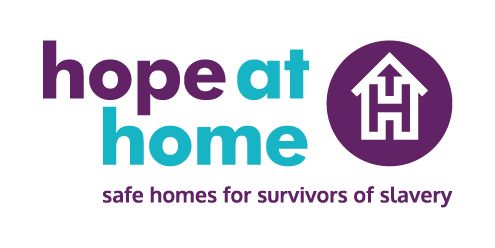In a recent policy shift, the Home Office has reduced the notice period for eviction of newly recognised refugees and survivors of modern slavery and human trafficking from 28 days to a mere seven days. This unexpected reduction has sparked widespread concern – particularly among charities and the organisations working with vulnerable groups.
Hope at Home, a Midlands-based charity and leading advocate for survivors of slavery, expresses fears that the impact of this policy will be devastating to vulnerable service users who have overwhelmingly experienced exploitation and trafficking. This shift accelerates the already daunting process of transitioning to independent living on already traumatised individuals, increasing the real risk of homelessness and re-trafficking for survivors of modern slavery.
“We are deeply troubled by this decision – it directly affects some of the most vulnerable individuals in our society,” said Helen Hodgson, Operations Director at Hope at Home. “The shortened notice period leaves survivors of modern slavery with insufficient time to secure accommodation, find employment, or access benefits. It’s a dangerous blow and a real barrier to their ability to rebuild their lives and seek safety, with many then facing precarious living situations and street homelessness.”
Survivors of trafficking and refugees, having faced immense challenges and trauma, require adequate time and support to transition from asylum accommodation to independent living. The reduced eviction notice places enormous stress on some of society’s most vulnerable individuals, many of whom who are already suffering in precarious situations.
“Seven days is simply untenable,” emphasised Helen. “This policy impacts thousands of survivors of modern slavery, trafficking and refugees – it pushes them closer to homelessness, destitution and further exploitation. Those in need of protection now face a sudden eviction without a safety net.”
Hope at Home joins a recent chorus of voices from the charitable sector – all calling for the government to reconsider this policy change. It urges them to instead adopt a much more compassionate and human approach. The hosting organisation calls for an extension of the notice period to at least 56 days, in line with the Homelessness Reduction Act. This extension would allow survivors and refugees to avoid the devastation of street homelessness and destitution. It gives them opportunity to complete some crucial paperwork, like Universal Credit applications and housing searches.
The charity also underscores the importance of ensuring refugees receive all necessary documentation before the notice period begins, as stipulated in recent Home Office policy. Clarity in guidance to local authorities is needed to prevent newly recognised refugees from slipping through the gaps in the system.
Hope at Home invites all concerned citizens or advocates to join in the campaign for a fair, humane asylum system – encouraging them to share the pitfalls of this legislative change with others. “Our asylum system must treat all individuals with dignity and compassion, regardless of their circumstances,” Helen adds.
The charity is currently experiencing three times its typical amount of referrals, with survivors of modern slavery in communities throughout the UK experiencing street homelessness and facing further exploitation. The charity calls for individuals and families with a spare bedroom to consider hosting a survivor of modern slavery, for an agreed time period, and with the charity’s full support and training. For those interested, please visit: https://www.hopeathome.org.uk/register-your-interest-hosting/ or contact Sarah Sidwell, hosting manager, on sarah@hopeathome.org.uk for details.


